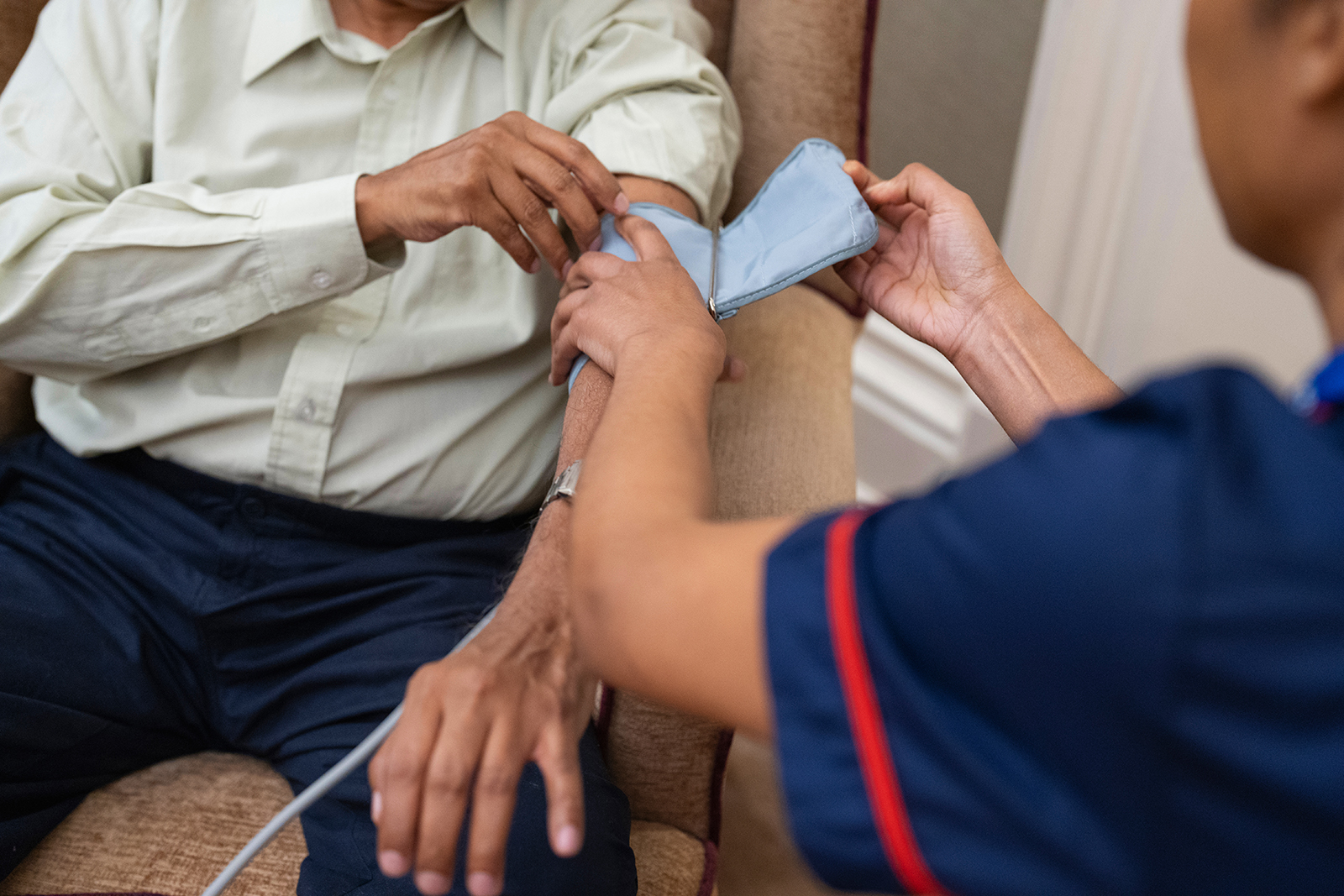Some blood pressure drugs may be more effective for certain ethnic groups — study

Researchers at King’s College London hope the findings lead to better personalised care
A first-of-its kind study has found that people’s response to treatment for high blood pressure may vary significantly depending on their ethnic background.
Authors of the study, carried out by King’s College London and presented last month at the European Society of Cardiology Congress in Madrid, said the results made clear the “critical importance” of personalised care when treating the condition.
High blood pressure, or hypertension, affects nearly one in three adults in England.
“On a worldwide and UK scale, high blood pressure will kill more of us than anything else,” said Ian Wilkinson, a professor of therapeutics at the University of Cambridge with more than 30 years of clinical experience in investigating and treating the condition.
“It’s the dominant driver for early death and disability. We know that it disproportionately affects ethnic minority groups in the UK and people from low socioeconomic backgrounds.”
While there is some research from the US and Canada suggesting that certain drugs may work better for people from particular ethnic backgrounds, up until now there has been little data on the subject in the UK.
The study of 829 adults divided people into three groups — South Asian, Black and white. The first stage of the trial looked at the performance in each group of three individual drugs routinely prescribed for hypertension — amlodipine, lisinopril and chlortalidone. Each participant took each drug, in a randomised order, for a period of two months.
It found that lisinopril worked best for white participants and amlodipine best for both Black and South Asian participants.
As some patients need more than one drug to control their blood pressure, the second part of the trial assigned participants three common combinations of these drugs, plus an additional combination not routinely prescribed.
Philip Chowienczyk, professor of clinical cardiovascular pharmacology at King’s College and co-lead author of the study, said this resulted in one of the most interesting findings.
“There was one combination that seemed to work best for everyone,” Chowienczyk said. “It wasn’t a combination that is routinely prescribed. We put that combination in the trial specifically because we thought it might work well, and we were pleased to find it worked equally well in all the [ethnic] groups.”
The combination in question was 25mg of chlorthalidone and 10mg of amiloride. While chlorthalidone is commonly prescribed, amiloride is less widely used and reserved for when patients do not respond to other drugs and drug combinations.
Researchers said a personalised approach to prescribing medicines would lead to better health outcomes. Currently, patients may have to trial a number of different drugs before finding one that works for them.
“There are a number of different problems if you don’t get the right drug. Some people might get disheartened if they see they are taking a tablet and it’s not working, so they might just stop taking it and stop getting their blood pressure measured, which puts them at an increased risk of stroke and heart attack,” said Wilkinson.
“The other thing is you can end up on more drugs than you need, because some of them aren’t working. Again, that’s a burden to the patient taking all those different drugs and it can put some people off taking them. And of course, if you’re paying for prescriptions, you are paying for drugs that are not working. Our aim is to get it right the first time much more often.”
The researchers said more work needed to be done to find out why different ethnic groups appeared to respond differently to different drugs, but Chowienczyk suggested it was likely a combination of environmental, lifestyle and genetic factors.
“In previous studies, we have looked at the genetic side in more detail and we’ve identified a few gene variants which are more common in one ethnic group than in another. There may also be differences in lifestyle — for example, in salt and potassium intake.
“That’s the next piece of work that we want to move on to, which is to understand in detail, and then that would allow us to personalise treatment in a better way.”
 Newsletter
Newsletter















